Three new subscribing states for the Hague Code of Conduct
25 February 2020
2020 opened with the announcement by three states of their intention to join the Hague Code of Conduct against Ballistic Missile Proliferation (HCoC): Saint Vincent and the Grenadines, Equatorial Guinea and Somalia. The number of subscribing states to this text now stands at 143. It should be noted that in 2019, Togo took the decision to subscribe to the Code.
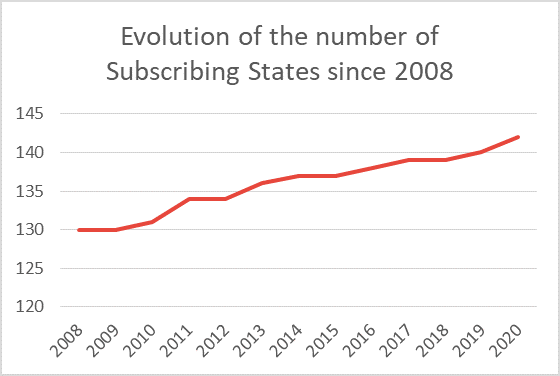
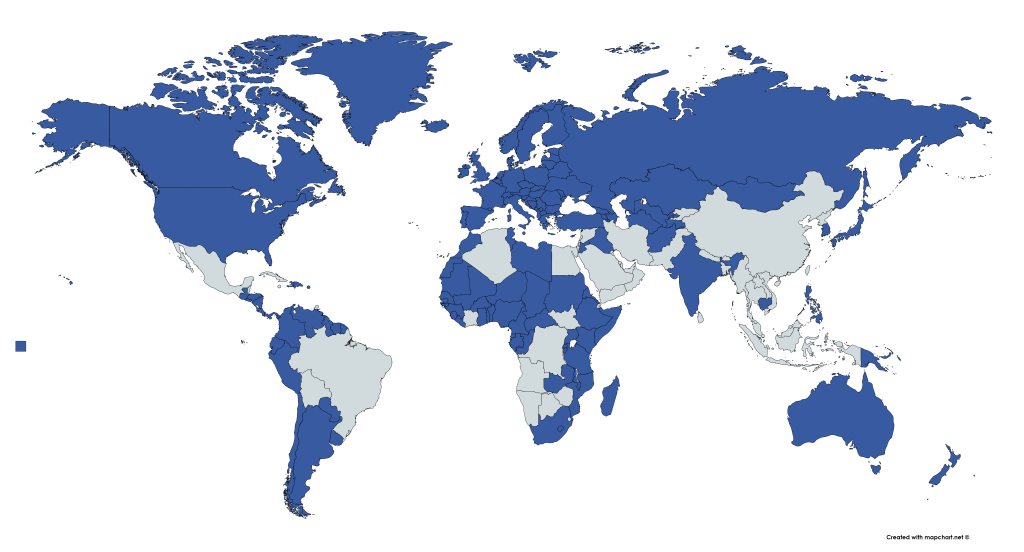
Subscribing states as of February 2020
The Hague Code of Conduct is a little-known element of the global non-proliferation regime. Adopted in 2002, it is today the only universally applicable norm seeking to regulate the development of ballistic weapons. Its purpose is twofold. On the one hand, it seeks to restrict the proliferation of ballistic missiles by committing its signatories to exercise restraint in the transfer of technologies that can be used for missile development, including in the civilian field (space launchers). On the other hand, it aims at reducing the risks associated with the use of these systems for the states that possess them by promoting transparency. Subscribing states therefore commit to providing an annual declaration on their ballistic missile policy. Furthermore, they undertake to pre-notify each missile test or space launch in order to limit the risks of confusion and misinterpretation.
As the implementing agency of the European project in support of the Code, the FRS has been closely following its development since 2008. This project has been supported by several decisions of the Council of the European Union, the most recent of which was adopted on 18 December 2017.
In the framework of this programme, FRS has organised numerous seminars, conferences, workshops, multilateral meetings and other events to raise States’ awareness of the Code, to encourage exchanges among experts on ballistic proliferation and to reflect on ways to promote the implementation of multilateral initiatives in the field of non-proliferation.
FRS is proud to see that this investment contributes to the further universalization of the Code. Indeed, in 2018, our teams organised a seminar for Caribbean countries in Saint Kitts and Nevis, which provided an opportunity for exchanges with representatives of Saint Vincent and the Grenadines, among others. In February 2019, in Lomé, FRS brought together representatives from more than 15 French-speaking African States. Extensive exchanges with representatives of Togo and Equatorial Guinea have encouraged these two States to join the Code. Lastly, a seminar for IGAD States (regional organisation of the States of the Horn of Africa) was held in Djibouti in September 2019, in which Somalia participated.
Overall, since 2008, the FRS has convened 14 regional seminars, 14 national expert missions and 14 side events in key multilateral forums. In 2011, the FRS also co-organised the opening of the Kourou Space Centre to a delegation of subscribing and non-subscribing States, with a view to promoting transparency.
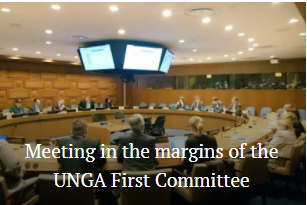
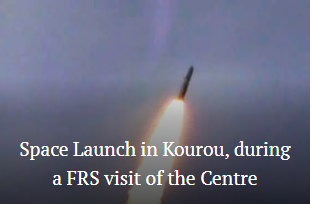
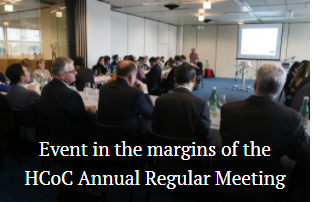
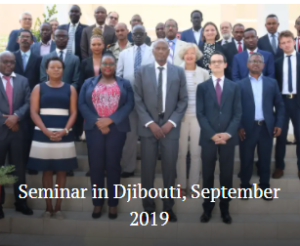
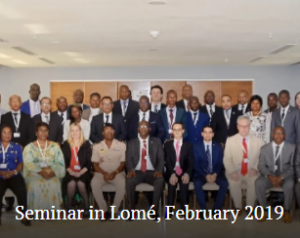
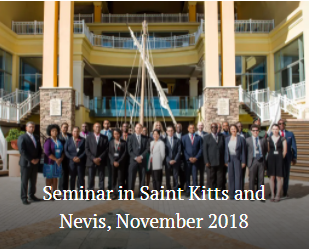
Since 2017, 129 states have been represented in at least one event, including some thirty non-subscribing States.
These outreach activities are supported and backed by the ongoing efforts of the European Union, the rotating Chairmanships of the Code (Sweden in 2018-2019, Norway in 2019-2020, Switzerland in 2020-2021) and the Executive Secretariat (Austria).
In addition, FRS is in charge of writing research articles on the Code. Notes were recently published on ballistic missiles as conventional strike weapons (by Stéphane Delory), and on the potential inclusion of cruise missiles in the perimeter of the Code (by Stéphane Delory, Emmanuelle Maitre and Jean Masson-Chérel and Emmanuelle Maitre).
This momentum shows that despite the current crisis in certain arms control regimes, a large majority of states remain very committed to multilateral regulation of international security. Secondly, in a context of renewed tension between major powers, any confidence-building measure, gesture of communication and transparency efforts can contribute to the reduction of strategic risks. In the absence of any immediate prospect of disarmament or reduction of tensions, and at a time when some states are conversely increasing their arsenals, it is essential to limit the risks of misunderstanding and miscalculation which could precipitate the outbreak of hostilities between major powers.
The HCoC is a living instrument, whose momentum is not slowing down. It is attracting new subscribers and stands as an example of a confidence-building measure that works, and is probably one of the few transparency mechanisms that has been able to establish itself at the multilateral level in the field of security. This dynamism demonstrates the relevance of this instrument and legitimizes the collective commitment that is conducted in its favour.
In this context, the FRS is glad to be able to make its contribution to a better understanding of this instrument and related issues. Thanks to its expertise in the field of missiles, space and non-proliferation, over the years it has become a key player in fostering international dialogue on these subjects. The European project in support of the Hague Code of Conduct is therefore a major example of a successful alliance between the diplomatic power of the European Union and the expertise of a European think tank. It contributes effectively to building a diplomacy of peace and transparency at the international level.

